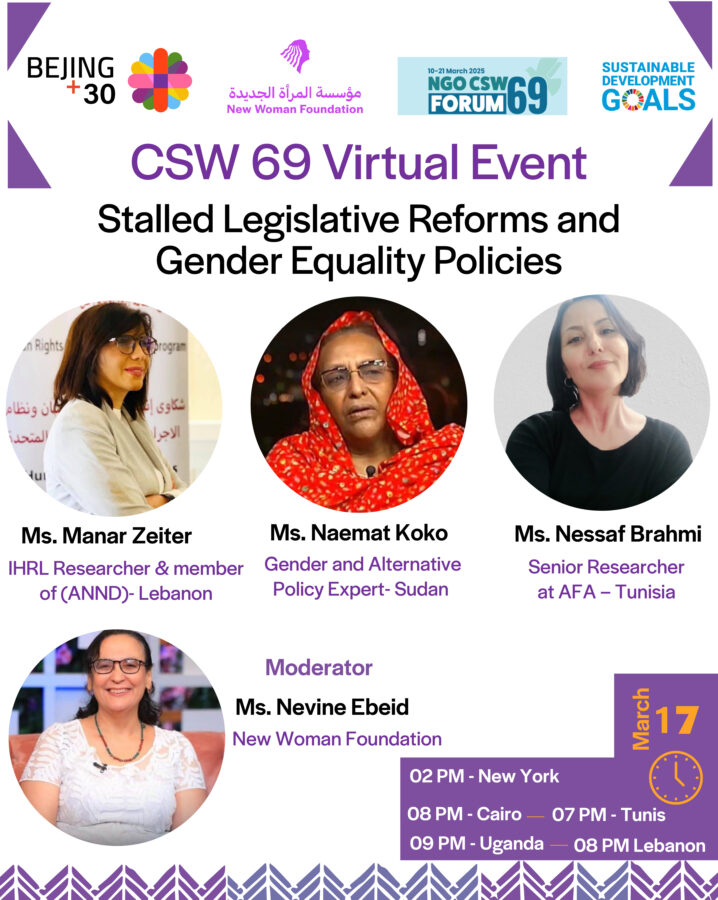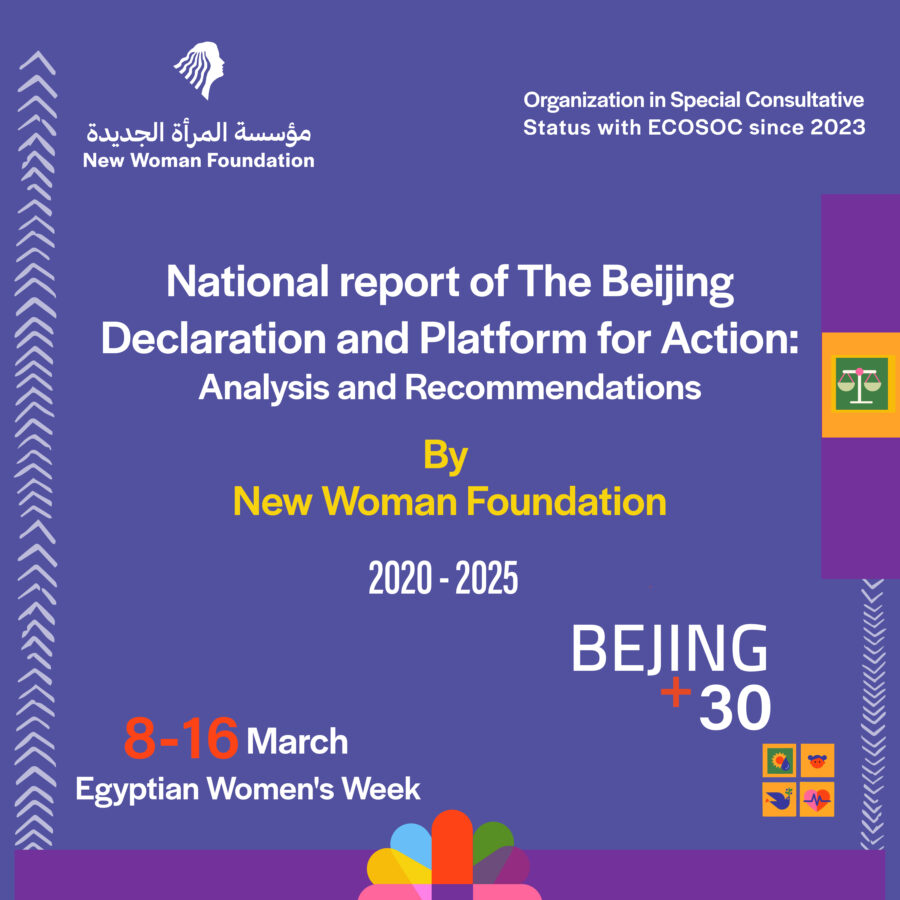- Contact Us
- 0020233382706
- nwrc@nwrcegypt.org
Violence and harassment against women and girls in the world of work is a human rights violation, say independent human rights mechanisms on violence against women and women’s rights

Solidarity Statement with Mai El Shamy
October 17, 2018
Civil Society speaker for Women, Peace and Security Open Debate / UNSC
July 12, 2019(31 May 2019) GENEVA – The platform of independent United Nations and regional expert mechanisms on violence against women and women’s rights1 has followed with keen interest the ongoing negotiations of a new International Labour Organisation (ILO) instrument to address violence and harassment in the world of work and expresses concern at the possibility of eroding already accepted international standards on women’s rights, including harassment as a form of gender-based violence. The Platform calls on all States taking part in the negotiations to uphold standards from the Convention on the Elimination of all Forms of Discrimination against Women (CEDAW), the Declaration on the Elimination of Violence against Women, the Inter-American Convention on the Prevention, Punishment, and Eradication of Violence against Women, known as Belém do Pará Convention, the Protocol to the African Charter on Human and Peoples’ Rights on the Rights of Women in Africa, known as Maputo Protocol and the Council of Europe Convention on preventing and combating violence against women and domestic violence, known as the Istanbul Convention. The regressive positions expressed by some States during the negotiations of this new ILO instrument are another attempt to water down women’s human rights, in a context of rollbacks on these rights which have been occurring in several regional and international fora and at the national level, as recently affirmed in the Platform’s joint statement2 and during the conference organized by the Council of Europe “Women’s rights at the Crossroads: strengthening international cooperation to close the gap between legal frameworks and their implementation” held in Strasbourg on 24 May 2019. Some of these positions denied that violence and harassment against women and girls constitute human rights violations, while others asserted that not all forms of violence and harassment in the workplace would amount to a violation of human rights. After years of struggle for and achievements on women’s rights, we are witnessing an unacceptable erosion of the global consensus that violence and harassment against women and girls are human rights violations. In 1993, the Declaration on the Elimination of Violence against Women explicitly affirmed that “violence against women constitutes a violation of the rights and fundamental freedoms of women and impairs or nullifiestheir enjoyment of those rights and freedom” and it encompasses, at its article 2, sexual harassment and intimidation at work. Other international and regional instruments also uphold that violence against women is a human rights violation and that States have an obligation of due diligence in preventing such violence, prosecuting perpetrators and providing redress to victims ofsuch violence. The CEDAW Committee in General Recommendation No. 35 (2017) on gender-based violence against women, updating general recommendation No. 19, at paragraph 14 affirmed that harassment is a form of gender-based violence and, at paragraph 24 (b), that “States will be responsible if they fail to take all appropriate measures to prevent as well as to investigate, prosecute, punish and provide reparation for acts or omissions by non-State actors which result in gender-based violence against women”.
The Istanbul Convention, in its article 40, requires that States take “the necessary legislative or other measures to ensure that any form of unwanted verbal, non‐verbal or physical conduct of a sexual nature with the purpose or effect of violating the dignity of a person, in particular when creating an intimidating, hostile, degrading, humiliating or offensive environment, is subject to criminal or other legal sanction”. Articles 33, 35 and 36 of the Istanbul Convention, respectively on psychological violence, physical violence and sexual violence, also set standards that are applicable in the prevention of violence against women in the workplace. The Protocol to the African Charter on Human and Peoples’ Rights on the Rights of Women in Africa at article 3 obligates States to adopt appropriate measuresto “ensure the protection of every woman’s right to respect for her dignity and protection of women from all forms of violence, particularly sexual and verbal violence”.
Similarly, article 2b of the Belém do Pará Convention states that violence against women shall be understood to include “physical, sexual and psychological violence that occurs in the community and is perpetrated by any person, including, among others (…) sexual harassment in the workplace”. In view of the forthcoming 108th session of the ILO in June, which will conclude the negotiations of this new legal instrument, we call on all States to safeguard existing standards on sexual harassment as a human rights violation. A denial of these standards would not only constitute an alarming setback in the promotion and protection of human rights and women’s rights, but would seriously undermine the efforts made by women and men in all regions of the world in the last twenty-five yearsto advance women’s rights. We have achieved strong human rights standards and consider that these rollbacks are unacceptable. The role of this platform is to continue upholding these standards, and reminding States of their international obligations. The platform therefore urges States to support the adoption of a strong new ILO instrument which is aligned to the already agreed standards on human rights. The platform reiterates that it is of paramount importance that States comply with the existing international legal standards recognizing that the human rights of women are an inalienable, integral and indivisible part of universal human rights.
END



